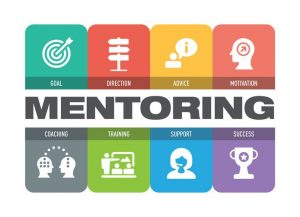Quickly, without doing an internet search, pick the names from this list of real and fictional people who you think is a sensei.
- Mr. Miyagi in “Karate Kid”
- F. Scott Fitzgerald
- Yu Shu Lien in “Crouching Tiger, Hidden Dragon”
- Albert Einstein
- Tom Brady
- Gandalf the Grey
If you answered “all the above,” then congratulations. In the most straightforward sense, “sensei” is a title conferred to those who have achieved mastery in a certain area. However, it also typically refers to someone who teaches, which includes most of the people on this list.
When it comes to a Lean Sensei, both mastery and teaching are part of the equation.
Learning to Learn
In the largest sense, a Lean Sensei changes a culture at an organization and helps everyone to learn how to learn. That involves an open mind and a willingness to change habits and processes for the better.
Of all the aspects of Lean that are important to an organization that adopts them, nothing is as important as having someone around who understands how to teach others in the methodology. Call them coach, teacher, mentor or sensei; they are a cornerstone to understanding and putting to use the principles of Lean.
It’s hard to overestimate their importance. After all, one of the main advantages of Lean is that it is improvement through learning.
As author John Shook wrote about Lean car manufacturer Toyota: “The most important accomplishment of the company is simply that it has learned to learn.”
What a Lean Sensei Does
A Lean Sensei is an expert in everything Lean. They use that knowledge in many different phases of an operation.
They also stand outside of an organization, allowing them to objectively see what needs to be done to make improvements without the haze of inside politics or powerful personalities.
One of the tasks a Lean Sensei will take on is to sit down with executives and map out a plan for continuous, strategic process improvement. This plan is always ambitious. But with the knowledge of a Lean Sensei in the room, it is also better focused and doable. The plan keeps the most important goals of the business in mind and helps achieve both short-term and long-term success.
Of course, the business of Lean is about eliminating waste and focusing every aspect of a project on what will meet the needs of customers. That requires explaining the end goals of Lean to executives and getting them to buy into the value of implementing process improvement.
And then there is the coaching aspect. Bringing their Lean knowledge to the table, a Lean Sensei works with individuals throughout an organization. Abilities of a Lean Sensei in this area include:
- Problem solving
- Technical skills
- Great listening skills
- A hands-on approach
- Leadership skills
- Passion about process improvement
- Great communication skills, both verbal and in writing
Kaizen Events
One goal of a Lean Sensei is to hold Kaizen Events. These events are short, very intensive bursts of effort to bring people together to solve a specific problem. Typically, those involved work in the area of the problem being addressed. Others involved can include support staff and, in some cases, management.
The idea is to blitz a problem and find a solution in a short amount of time by completely focusing on it.
A Lean Sensei excels in this area. By bringing to bear the people who understand a process the best, they know they can quickly find and implement solutions.
Another part of the Lean Sensei’s mission in coaching, especially where it involves managers, is to get people to look beyond the immediate challenges and focus on the needs of customers.
Lean, it should always be remembered, focuses on everything through the filter of what best serves the customer. All else is eliminated.
This is especially important in the content of rapidly evolving technology. Leaders need to keep in mind that this not only can change how they produce something, but also have an impact on customers’ needs (tech-driven safety features on cars, for example).
In short, the Lean Sensei encourages managers and executives to look down the road to the future.
Going to Gemba
Another key component in a Lean Sensei’s job is to teach about “going to Gemba.” Simply put, this means getting out of your office and actually going to see how a process works.
At Toyota, when legendary Lean Six Sigma practitioner Taiichi Ohno was in charge, footprints were literally put down on the floor in front of specific operation. Managers were told to stand in those footprints for hours, sometimes days.
The point was this: Don’t suggest making changes to an operation without fully understanding how it works.
Understanding the details. Focusing on problem solving. Coaching on the elements of Lean. A Lean Sensei has many roles, but the bottom line is this: They are masters of Lean who can change your organization for the better.



